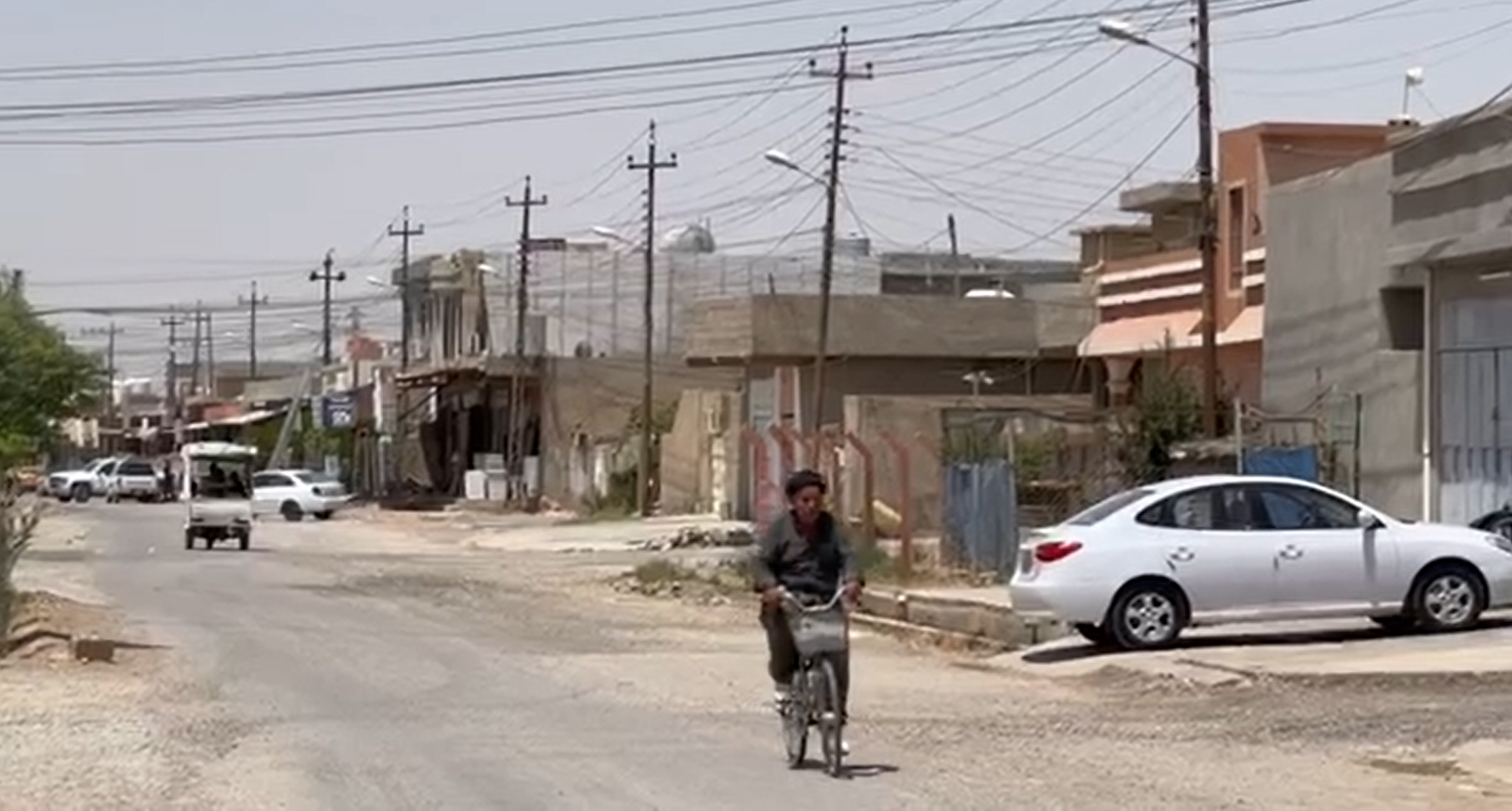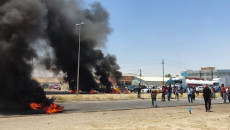Residents of about 200 homes in one of the neighborhoods of Daquq district, south of Kirkuk, have been deprived of national electricity for the last two weeks and they are now dependent on private generators that supply them with less than seven hours a day, despite the high temperatures that exceeds 40 degrees Celsius.
The reason for the power outage in Runaki neighborhood in Daquq is due to the breakdown of the electrical transformer for the neighborhood two weeks ago without being repaired or replaced until today, Wednesday, June 29.
Sam Mahmoud, a resident of the neighborhood, says that no party has moved to address the problem, so residents of the neighborhood are forced to evacuate their homes due to the high temperatures, though it is not the first time because the transformer of the neighborhood has burnt several times due to the heavy load on it.
Ronaki neighborhood was built after 2003 and is considered one of the illegally built neighborhoods (bypass), and it includes 200 families, most of whom are Kurds, as well as a number of Arab and Turkmen families.
Saman Hawez, also from the neighborhood, is angry that the national electricity transformer was burnt due to the increased load on it, expressing his displeasure at ignoring the electricity problem that the neighborhood residents suffer from in light of the increased need to use air conditioners.
“Some have to put children inside the vehicles and turn on the air conditioning for them,” Hawez added.
Residents of the neighborhood gathered on Tuesday, June 28 and demanded the local Administration to find a solution to their problem.
Video: Daquq June 2022- Residents of Runaki neighborhood protest due to the national electricity cut
The spokesman for the mayor of Daquq district, Abbas Saber, explained to (KirkukNow) that they had received complaints from residents of the neighborhood, which is considered one of the illegally built neighborhoods outside the municipality’s map, and said that the mayoralty requested the Kirkuk administration to provide the neighborhood with two electric transformers to reduce the load.
According to (KirkukNow) follow-up, the residents of the neighborhood have been dependent for two weeks on electricity supplied by private generators, which does not exceed seven hours a day.
The local official pledged to address the neighborhood's electricity problem within three or four days, but he appealed to the neighborhood's residents to rationalize consumption and reduce the use of electrical appliances.
Daquq district is located 44 km south of Kirkuk with an estimated population of over 97,000 residents.
Kirkuk province needs more than 1,000 megawatts of electricity daily to provide electricity to the locals, but receives less than half and relies on 733 private generators to fill the gap.
Following gulf war in 1991, the Iraqi state infrastructure was sharply hit by the economic embargo on Saddam Hussein regime due to damage of many transmission lines and substations leaving the basic services provided by the state inadequate.
Beside the national network of state-subsidized electricity supply all over Iraq, residential units and business projects rely on private generators for power supply to fill the gap of national power outage.






